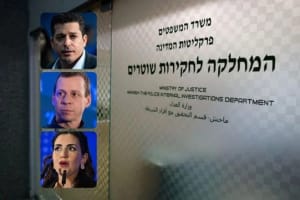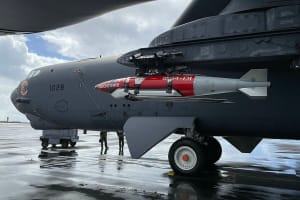The blue helmets of UNIFIL

Born in the crucible of the 1978 South Lebanon conflict, UNIFIL was initially tasked with confirming Israeli withdrawal and restoring Lebanese government authority. Yet today, as Hezbollah rockets arc over the Blue Line, many wonder if this aging mission has become merely part of the landscape.
UNIFIL's mandate, expanded in 2006 following the Lebanon War, reads like a peacekeeper's wish list: monitor the cessation of hostilities, support the Lebanese Armed Forces (LAF), and ensure humanitarian access. Reality, however, has proved stubbornly resistant to UN resolutions. Hezbollah, the Iran-backed militia-cum-political party, has transformed from a ragtag group into what some analysts call the world's most heavily armed non-state actor.
The UNIFI mission can claim some successes. It has prevented minor skirmishes from escalating into full-blown conflicts. Its de-mining efforts have made vast swathes of southern Lebanon habitable again. UNIFIL's medical outreach has won hearts and minds in local communities. Perhaps most crucially, it serves as a vital communication channel between Israel and Lebanon
Yet UNIFIL's failures are stark. Despite UN Security Council Resolution 1701 calling for a weapons-free zone between the Litani River and the Blue Line, Hezbollah's military infrastructure has flourished under UNIFIL's gaze. The peacekeepers' freedom of movement is routinely restricted, sometimes by Hezbollah, other times by the Lebanese Armed Forces they are meant to support.
The recent flare-up following Hamas's October 7th attack on Israel has laid bare UNIFIL's limitations. As Hezbollah launched hundreds of rockets into northern Israel from UNIFIL's area of operations, the peacekeepers could do little more than count and report. The evacuation of some 60,000 Israeli civilians from the north stands as an indictment of UNIFIL's inability to maintain the peace it was tasked to keep.
Some suggest that UNIFIL may have devolved into an expensive observer mission, with the United States alone contributing over $140 million annually to its $510 million budget. Since 2006, Washington has invested more than $2.5 billion in UNIFIL, with a similar amount supporting the LAF. Yet, neither body seems capable – or perhaps willing – to curb Hezbollah.
Jean-Pierre Lacroix, the UN undersecretary-general for peace operations, told reporters that UNIFIL had anticipated “a limited, targeted ground operation” and had thoroughly discussed whether UN peacekeepers should stay or not, deciding they should stay for now.
Thus, UN peacekeepers will remain in their positions on Lebanon’s southern border despite Israel’s request to vacate some areas before it launched its ground operation against Hezbollah militants, Lacroix, the UN peacekeeping chief said.
Lacroix said the commanders and liaison officers from the UN force, known as UNIFIL, also are in nearly hourly contact with their counterparts in the Israeli and Lebanese militaries. He called that the key to protecting the UN’s 10,058 peacekeepers.
The UN force is “the only channel of communications between the parties,” he told reporters. “The peacekeepers are also working with partners to do what they can to protect the population.”
UNIFIL was created to oversee the withdrawal of Israeli troops from southern Lebanon after Israel’s 1978 invasion. The UN expanded its mission following the 2006 war between Israel and Hezbollah, allowing peacekeepers to deploy along the Israeli border.
“We’re constantly reviewing the situation” on the ground in terms of the safety and security of the peacekeepers, Lacroix said. He added that contingency plans are ready but declined to elaborate on those plans.
Lacroix also stressed that both Israel and Lebanon have an obligation to protect the UN peacekeepers.
Israeli ground forces have crossed into southern Lebanon, which along with stepped-up airstrikes marked a significant escalation against Iranian-backed Hezbollah militants and of the war in the Middle East. The fighting comes as the region braces for Israel’s response to Iran’s ballistic missile attack.
The Israelis may have breached the UN Security Council resolution themselves by crossing the border into Lebanon, but Hezbollah launching rockets into northern Israel on Oct. 8th, 2023, was also a breach of that agreement.
Hezbollah began firing across the border after Iranian-backed Hamas militants carried out attacks on Israel on Oct. 7 and then Israel retaliated with its military offensive in Gaza.
Lacroix said that there were a few “issues” after Israel’s ground operation in Lebanon began, which he wouldn’t go into, but that the UN liaison mechanism with its Israeli and Lebanese counterparts was “effective in addressing those issues.”
Lacroix said UNIFIL now is not carrying out patrols, which it would normally do, but its positions are manned. However, in some places, the number of peacekeepers has been reduced by about 20%, he confirmed.
When Lacroix was asked whether Israeli fire was coming too close to its bases or positions, he replied that one of the added values of the liaison operation is to prevent and deal with possible incidents that would have the potential of affecting the safety, the security of our peacekeepers.
The liaison officers also are dealing with other activities, including military movements, he added.
Lacroix said UNIFIL had been supporting civilian efforts to supply humanitarian assistance to people in southern Lebanon. The peacekeepers are still trying to help and “are playing a role as much as possible,” he said.
On August 28th, the UN Security Council had renewed the mandate for another year at the request of the government of Lebanon however Hezbollah publicly stated in 2006 that they would not disarm and repeated that on several other occasions.
The Chief of the General Staff of the Israel Defense Forces (IDF), Herzi Halevi, said recently that the main objective of the attacks in Lebanon is to expel the terrorist group Hezbollah from their positions in the south of the country, the only way to guarantee security in the north of Israeli territory so that the displaced Israelis could return to their homes in the north.
Spanish Major General, Aroldo Lázaro, leads the more than 10,000 soldiers and 800 civilians from 50 countries that make up the UN mission. UNIFIL's force consists of a total of 10,058 peacekeepers from 50 troop-contributing countries.
Muslim-majority nations Indonesia and Malaysia together provide over 2,000 soldiers some 20% of the armed forces and China 418: Ireland 350 and Türkiye 92. Undersecretary Lacroix explained that the troop level had been recently reduced by more than 20% from the 15,000-level established in 2006 for the safety of the remaining peacekeepers.
Resolution 1701 specifies that the Lebanese state and its own military should be the only armed group in Lebanon and that Hezbollah should disarm.
UNIFIL is not mandated with the of disarming Hezbollah, nor are they required to communicate with the group.
Resolution 1701 was passed under certain UNSC bylaws which means none of these directives could be enforced militarily making sure that Resolution 1701 would be dependent on the cooperation of all involved.

Aurthur is a technical journalist, SEO content writer, marketing strategist and freelance web developer. He holds a MBA from the University of Management and Technology in Arlington, VA.














